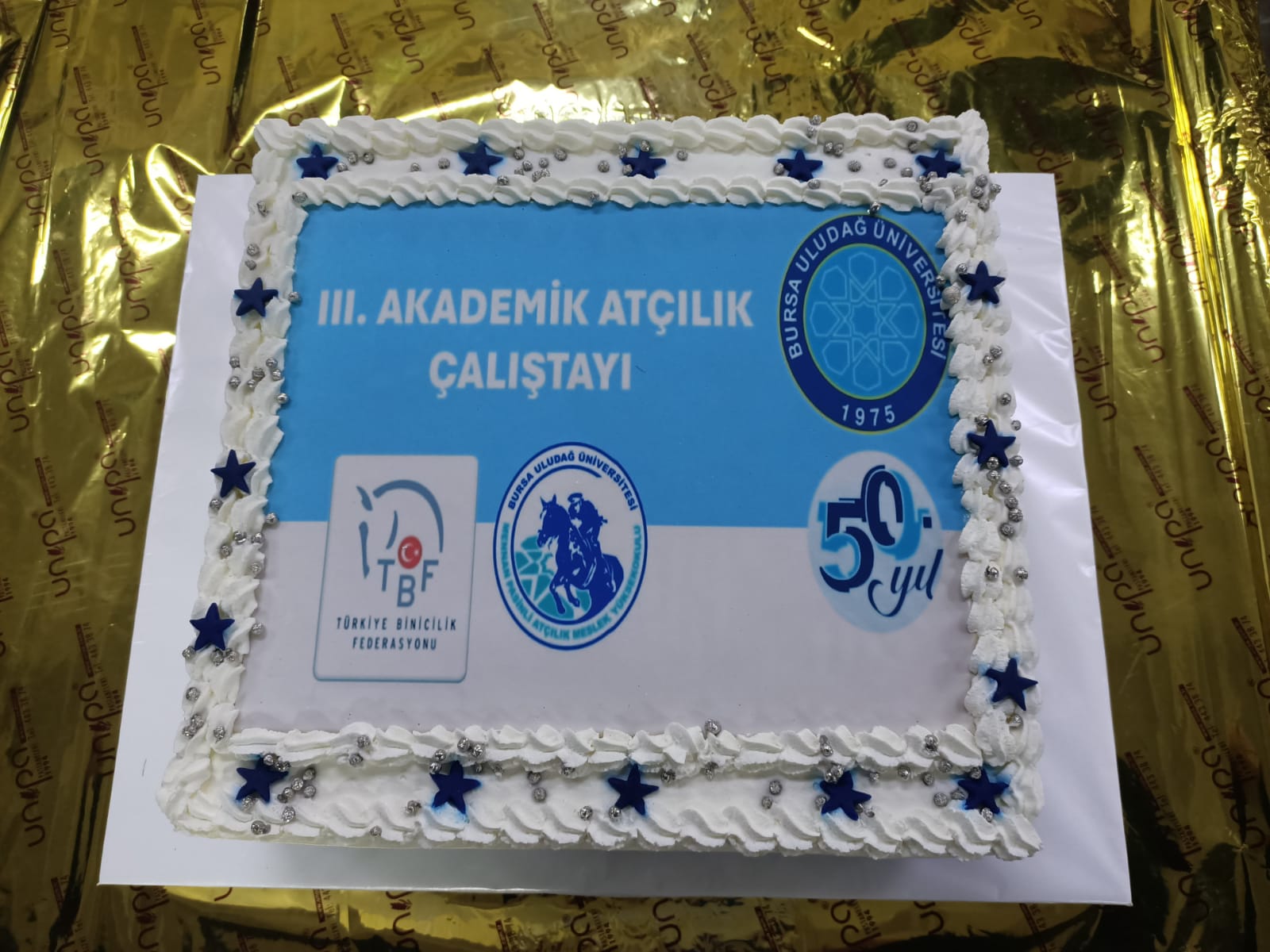Participation in the 3rd Academic Equestrian Workshop

Konya Ereğli Kemal Akman Vocational School Attends 3rd Academic Equestrian Workshop
Dr. Lecturer Zahit Kutalmış KAYA, Head of the Department of Plant and Animal Production, and Assistant Director Lecturer Mehmet Hanifi YALÇIN, faculty members from the Equine and Coaching Program of Necmettin Erbakan University Konya Ereğli Kemal Akman Vocational School, participated in the 3rd Academic Equestrian Workshop organized in collaboration with Bursa Uludağ University and the Turkish Equestrian Federation (TBF).
The workshop was hosted by the Mennan Pasinli Equestrian Vocational School of Bursa Uludağ University (BUÜ) and held on May 10–11, 2025, at the Prof. Dr. Fuat Sezgin Library Conference Hall, with broad participation and productive discussions. Academics from 12 universities offering Equine and Coaching Programs, representatives from the Nevşehir Gendarmerie Horse and Dog Training Center Command (JAKEM), and the TBF came together to address various academic topics related to equestrian education and practices.
Opening Ceremony and Protocol Speeches
The workshop commenced on Saturday, May 10, with a moment of silence and the national anthem. Opening remarks were delivered by Prof. Dr. Gülşen GONCAGÜL, Director of BUÜ Mennan Pasinli Equestrian Vocational School; Prof. Dr. Çağatan TAŞKIN, BUÜ MEYOK Coordinator; and Mr. Hasan Engin TUNCER, President of the Turkish Equestrian Federation.
Prof. Dr. Goncagül emphasized that the core focus of the workshop was the Academic Core Curriculum for Equestrian Education (AAÇEP), aiming to raise and sustain academic standards in equestrian training. Prof. Dr. TAŞKIN highlighted the importance of academic contributions to the sector and thanked all supporting stakeholders.
Mr. TUNCER addressed issues faced by riding clubs, such as horse management and competition challenges, as well as ongoing pony sponsorship projects. He underlined the Federation’s appreciation of academic collaboration in the equestrian field.
Sessions and Discussions
Session 1 – Evaluation of AAÇEP and Final Report
Moderated by Prof. Dr. Çağla PARKAN YARAMIŞ, the first session featured Prof. Dr. Gülşen GONCAGÜL, who presented the development process of AAÇEP. She stated that the program was developed jointly with the Ministry of Youth and Sports and TBF, and is set to be submitted to the Inter-University Council (ÜAK) for approval by 2025.
The session stressed the importance of curriculum standardization among universities, defining trainer qualifications, and aligning educational content with industry needs. Contributions from 12 universities were acknowledged, and participants' questions were addressed.
Session 2 – Occupational Health and Safety
In the afternoon session, moderated by Assoc. Prof. Dr. Abdurrahman KÖSEMAN, the focus was on occupational health and safety in equestrian facilities. Discussions included physical and environmental risks for staff working with horses, legal regulations, safety equipment standards, first aid protocols, and the importance of on-site training.
Participants agreed on the need for a dedicated occupational safety curriculum for the equestrian sector. The importance of pre-graduation awareness and standardized institutional safety protocols was emphasized. Presentations were delivered by Lecturers Murat TEMEL, Büşra KIRLANGIÇ, and Sevil ÇIRAKOĞLU KELLECİ.
Representing JAKEM, Gendarmerie Colonel Hüseyin FIRAT presented on the training and operations conducted at the Gendarmerie Horse Training Center.
Session 3 – TBF & Academia: Field and Educational Collaborations
Moderated by TBF Secretary General Önder KARAEŞ, this session covered joint training programs, field applications, coaching certification, and student internship models between the federation and universities. Panelists Lecturers Kemal YILMAZ, Fevzi YILDIRIM, and Özkan YEŞİLÇAY provided valuable insights, and the session concluded with an interactive Q&A session.
Session 4 – TBF & Academia: Licensing and Certification Systems
Held on Sunday, May 11, this session focused on the project development stages of TBF–Academia collaborations. Moderated again by Önder KARAEŞ, the session explored possible joint projects and support mechanisms between the federation and universities.
Research Assistant Erva ESER presented on EU projects and national funding programs, while Dr. Lecturer Merve BİŞKİN TÜRKMEN discussed COST Actions. Assoc. Prof. Dr. Derviş ÖZTÜRK spoke about workplace education and internship models for student employment, and Lecturer Soner DEMİR addressed the need for farrier training programs.
Final Session – Recommendations for Qualified Workforce Development
The final session, moderated by Prof. Dr. Hakan ŞENTÜRK, centered on recommendations for building a qualified workforce in the equine sector. Topics included competency criteria, federation oversight, alignment with international certification systems, and modular curriculum development.
A general evaluation was made, and the sessions concluded with the hope that the decisions taken would guide future collaborative efforts. The workshop highlighted the vital role of academic engagement in the development of equestrian education in Türkiye. A final declaration, prepared in line with participant feedback, is expected to serve as a guiding policy document for future educational strategies in the field.
.jpeg)
.jpeg)
